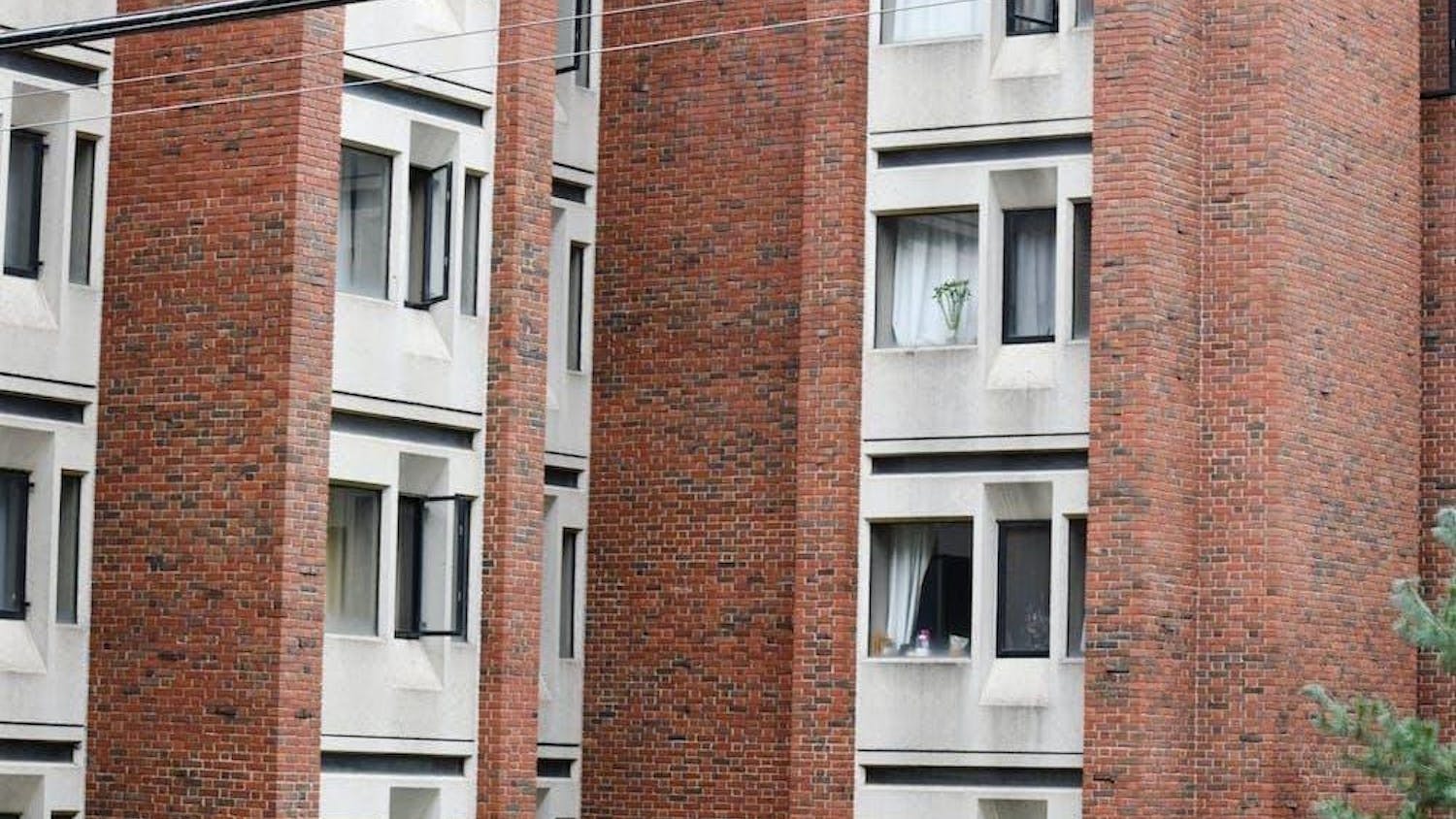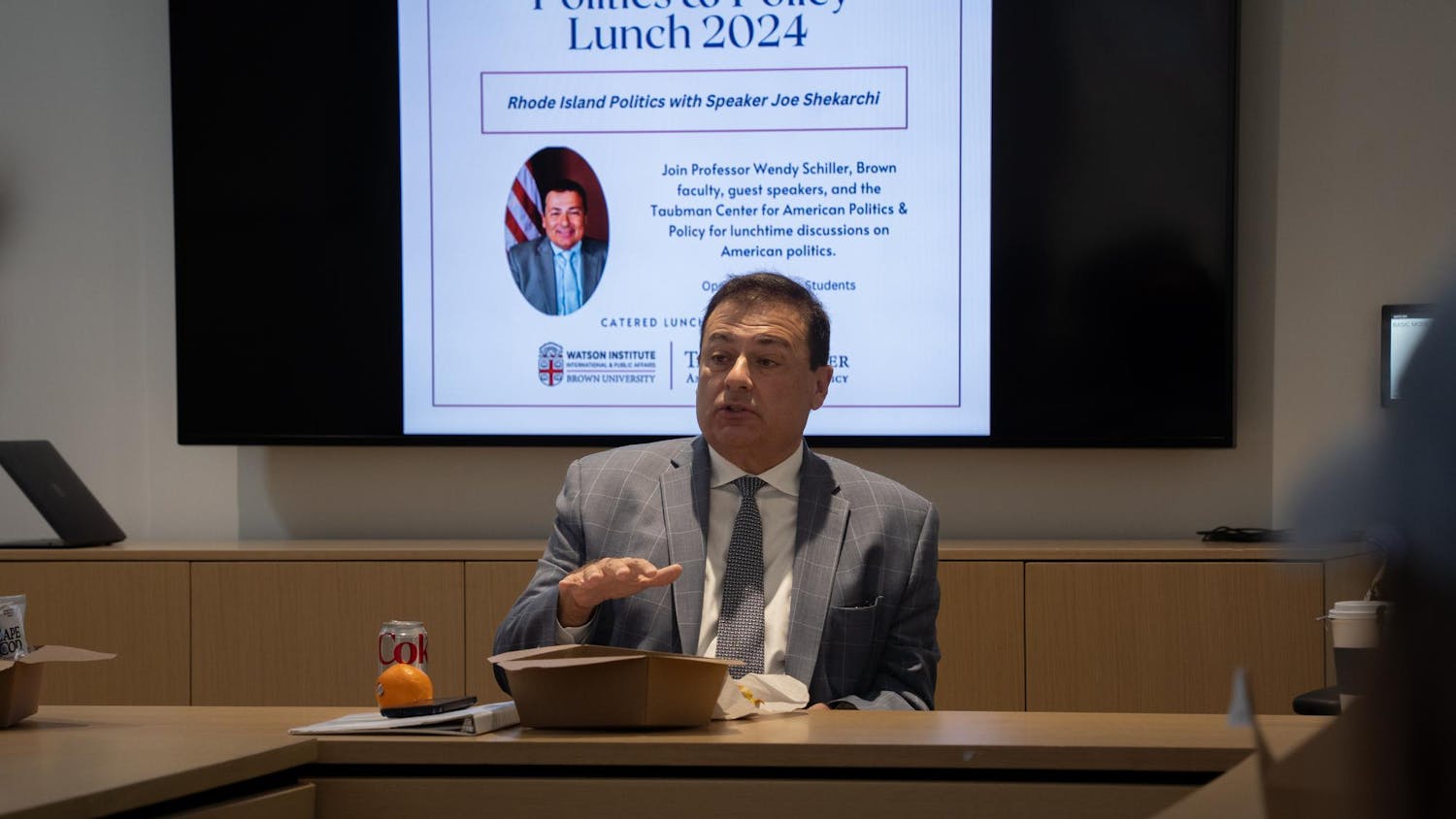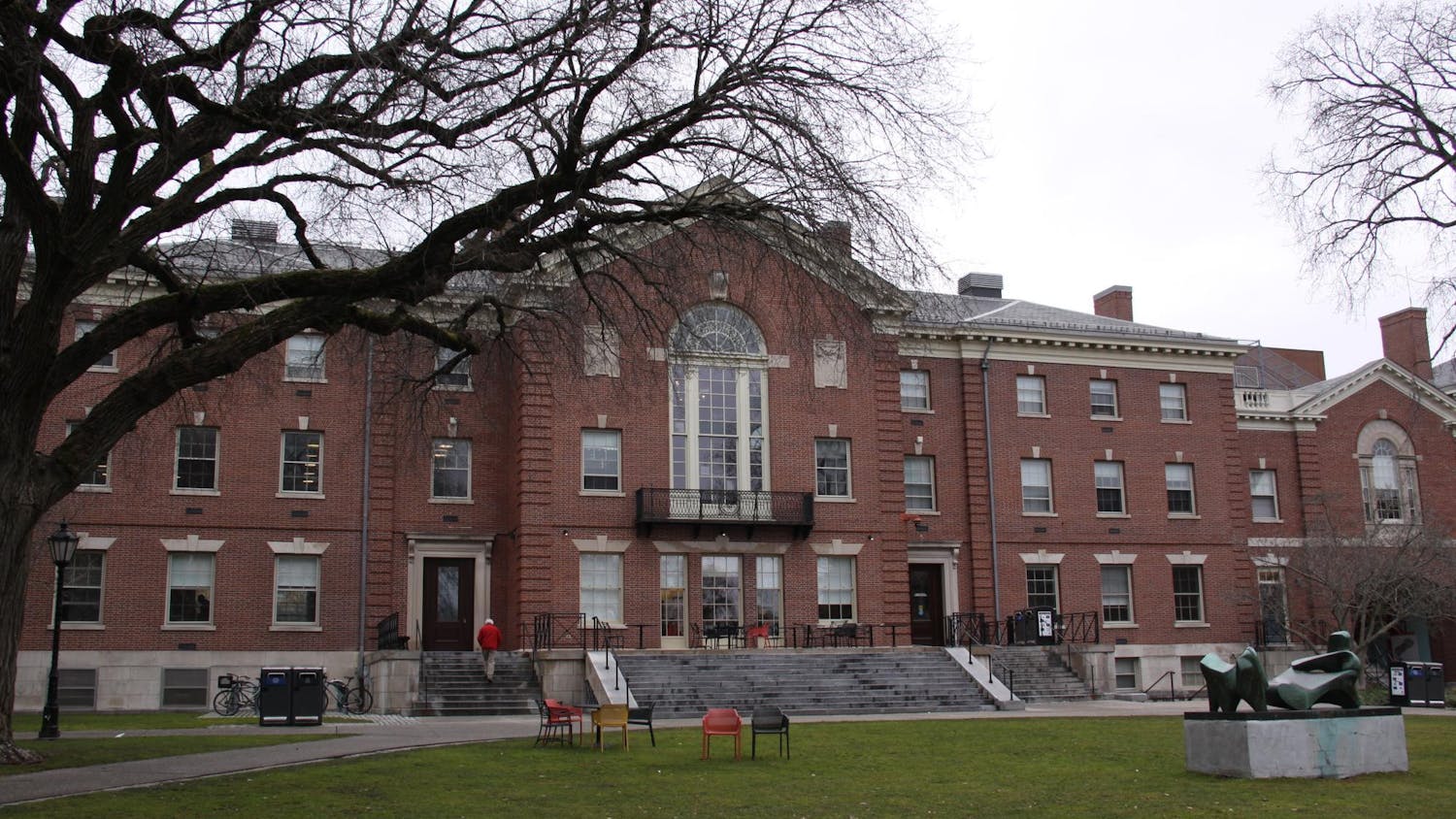It was 9 p.m. Friday, and 15 Occupiers — participants from Occupy College Hill and Occupy Providence — sat in a circle around a potluck dinner discussing semantics: Were the issues they planned to present to the Corporation the next morning grievances or demands?
Occupy College Hill organized the event One Night Stand to allow for group discussion of complaints regarding University practices. The camp-out on the Main Green was scheduled to immediately precede Saturday's semi-annual meeting of the Corporation, the University's highest governing body.
The discussion inevitably led to a more poignant debate — what kind of collateral did the group possess to persuade the Corporation to listen?
"What power building have you done?" asked Jay Willis, a Seattle native who has been a part of Occupy Providence since its inception. "If you don't have any weight to throw, you look silly," Willis said. "You mess with the guys who have money, they're going to come down on you," he added.
"The culture in every society is that everyone is so accustomed to not having power," said Doug McDonald '13, arguing that the Occupy movement is the beginning of a cultural shift that will allow the masses to find real power.
"The point of this movement is confronting these really great powers," said Julie Pittman '12, one of the organizers of the event.
Ultimately, the group decided it would present grievances to the Corporation in hopes of opening a dialogue about what could be done to improve the University. The specific grievances were to be determined through discussions over the course of the night and during the next morning's teach-ins.
The University's lack of support for the Providence community was discussed as a major concern. As a nonprofit, Brown is not required to pay property taxes, and it instead contributes voluntary payments to the city. As one of the city's largest institutions, the University would pay about $30 million annually in taxes if it were to pay in full, the Occupiers said.
"Brown makes a shit-ton of money," said Kevin Casto '13. The University can afford to pay taxes to a city that desperately needs the funds, he said. The local education system is particularly suffering, he noted, referencing the four elementary schools closed in May to reduce the city's budget deficit by $10 million.
Occupiers also criticized the University's investment practices, expressing discomfort with the lack of transparency. "We have no idea where that money is going," said Becca Rast '13.5. The University's investment portfolio may not match up with the liberal ideals it purports to champion, she said.
The group identified the Corporation's structure as severely undemocratic due to the lack of transparency and student involvement. "The Corporation is made up of a bunch of investment bankers and (expletive) CEOs," Casto said. "We need to make it clear that what they're doing is not okay," he said.
At 9 a.m. Saturday, Corporation members began filing into University Hall. They were greeted by about 30 Occupiers fresh from a night sleeping under the stars, fueled by a hot breakfast donated by Loui's Family Restaurant, armed with slips listing their grievances and ready to play what Pittman called "the spot-the-Corporation-member game."
Most Corporation members hurried past the Occupiers, but those who stopped to chat seemed interested in talking, Rast said. "The world is far from perfect. We need your help," said Chancellor Emeritus Stephen Robert '62 P'91, wishing the group luck. "They're all good questions. They deserve to be answered."
Kevin McLaughlin P'12, dean of the faculty, suggested the possibility of a public discussion facilitated by faculty members to address the grievances. "I wonder if this is a teaching moment," he said.
Rev. Janet Cooper Nelson, University chaplain, had expressed concern that the Occupiers might disrupt a memorial service taking place at Manning Chapel, but the protestors were careful to quietly respect the ceremony.
"The students have been wonderful," said James Campbell, associate dean for student life, who spent the morning on the Main Green to watch over the event.
About 50 participants from Occupy Providence marched up the hill that morning to show solidarity with the Occupiers on campus. Many seemed hopeful about the movement's prospects at the collegiate level.
"This is something that's going to take a long time," said Providence resident Michael McCarthy, adding that many of the Occupy protestors will need to return to their families and jobs. "They can't keep it up but students can."
The Occupiers held a teach-in during the Corporation's meeting and formalized their grievances in a letter they ceremonially taped to the door of University Hall in what Pittman described as "Martin Luther style."
"This is history," she said.
"I really believe in what students are able to accomplish, but they have to be willing to do it," McCarthy said. "They might miss handing in a paper. They might have to tell a professor they're a part of a worldwide movement."
Andrew Stewart, a local documentary filmmaker, joined the students of Occupy College Hill to vocalize his concern with the University's early ties to slavery and the University founders' associations with what is now Bank of America. He expressed excitement about the movement at Brown and across the country.
"This is definitely the last thing I ever expected," he said. "But I think this is a beautiful thing."




